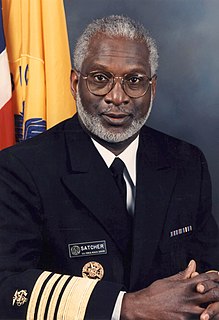A Quote by Lights
The way things are today, people need to talk about mental health and need to be open about it.
Related Quotes
One thing I want to clarify - that every service member, veteran, wants us to remember - is that the vast majority of people returning from service come back completely healthy. But when we do come across someone who is struggling. We have to develop a culture of open arms and acceptance so that they feel comfortable saying, "I'm a veteran. And by the way, I need little help." This is something we need to do in this country around mental health as a whole - destigmatizing mental health.
Given Freudian assumptions about the nature of children and the biological predestination of mothers, it is unthinkable for mothers voluntarily to leave their babies in others' care, without guilt about the baby's well-being and a sense of self-deprivation. Mothers need their babies for their own mental health, and babies need their mothers for their mental health--a reciprocal and symbiotic relationship.
I don't think people talk about mental illness a lot, but they need to know it's OK to talk about how they are feeling. People are afraid of telling the truth because they think it's going to hurt everyone around them. I've kept so much inside that I've literally lost it. I wish more people would get help when they feel like they need it-- not just to look to medicine, but to the support of others.
I've been on record since 2005 saying we need to find a way to eliminate the use of the pre-existing condition. The way to do that is really to get everyone in the insurance pool, and that way, we'll have people who need health services today, some who need it tomorrow, and some who won't need it for quite some time.
One of the issues I think is very important, in many communities of color, there's a stigma about mental health. We find that the shaming that comes from acknowledging that one may have some issues that may relate to mental health, often people are not willing to go and seek additional help because of that shaming or that cultural stigma that's associated with it. And I think that we need to make this change in how people approach mental health.
One of the things we need to do is address mental health care as an integral part of primary care. People often aren't able to navigate a separate system, so you see successful models where a primary care physician is able to identify, diagnose, and concurrently help people get mental health treatment who have mental health issues.
The impact of the earthquake on mental health was huge and unimaginably deep in people's lives. Some lost all benchmarks and references because of their great loss, we still have people coming to clinics with mental health problems related to the earthquake. They talk about the earthquake, about being under the rubble.
Mental health is an area where people are embarrassed. They don't want to talk about it because somehow they feel they're a failure as a parent or, you know, they're embarrassed for their child or they want to protect their child, lots of very good reasons, but mental health, I feel, is something that you have to talk about.



































